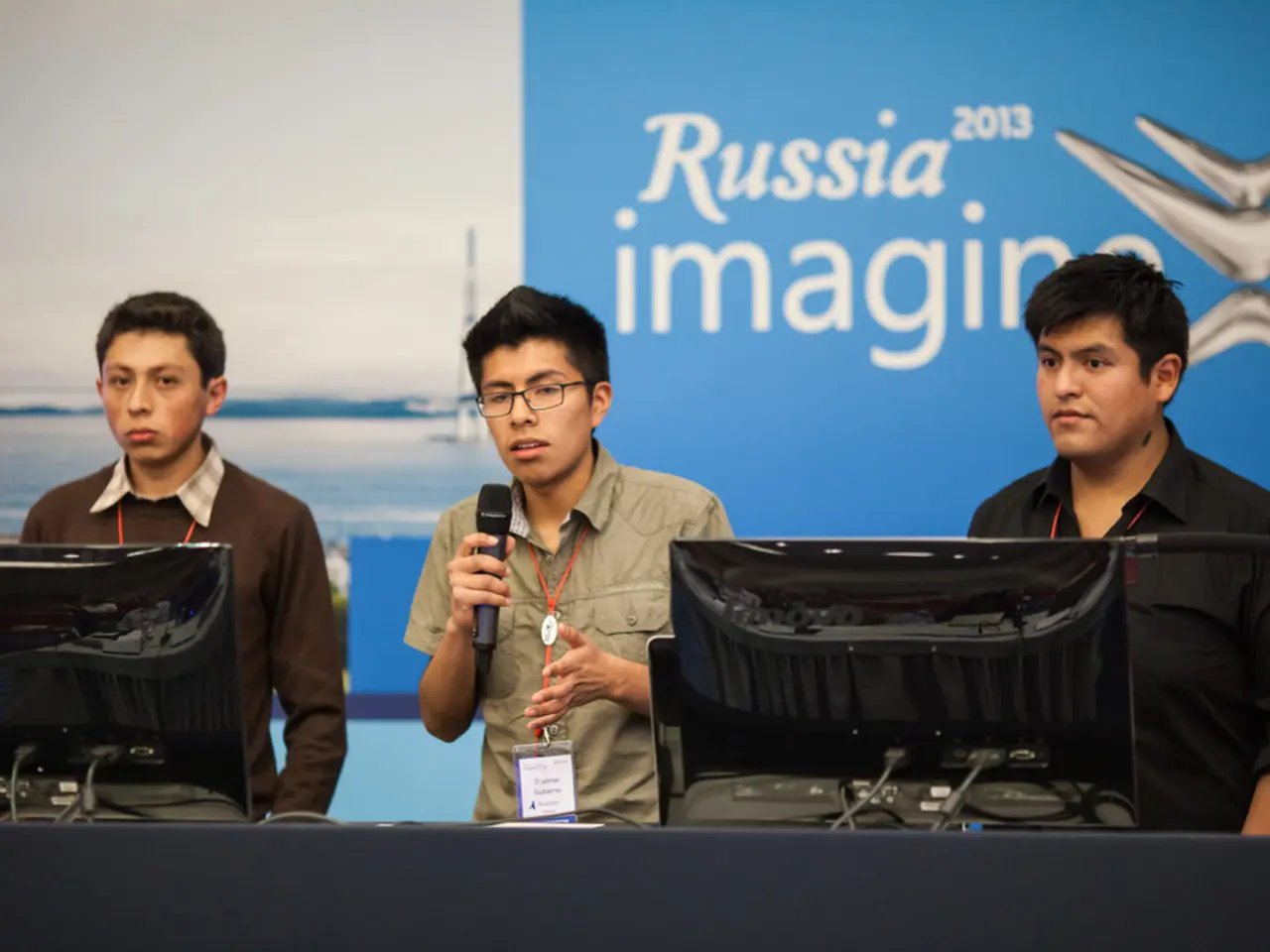German Hosting of Ukrainian Refugees: Navigating Transitional Existences
In the heart of Europe, Ukrainian refugees are navigating the challenges of temporary residence status and living between two worlds amid a complex and often uncertain situation. A recent discussion at the Roundtable Osteuropa, a platform for discussing research related to Eastern Europe, explored these issues in depth.
Hosted by ZOiS researchers, the roundtable featured Oleksandra Bienert, chairperson of the Alliance of Ukrainian Organizations in Germany, and political scientist Irina Mützelburg, who is associated with ZOiS. Stefanie Orphal moderated the insightful conversation.
**Temporary Protection and Residence Status** As of March 2025, over one million people held residence permits for temporary protection in Germany under Section 24 of the Residence Act. This status grants certain rights, including the freedom to move within the EU for up to 90 days in a 180-day period and temporary returns to Ukraine without losing protection status. However, the temporary nature of this protection is inherently uncertain, especially for those who are third-country nationals differently affected by eligibility rules after March 2025, requiring them to seek asylum or alternative permits.
**Housing Challenges and Accommodation Conditions** While over 75% of Ukrainian refugees live in private accommodation, the remainder resides in reception centres, refugee camps, or converted facilities like sports halls. Housing shortages remain severe in some areas such as Berlin and Hamburg. Refugees often start in camps or reception centres and may be relocated depending on vacancies, but re-registration or choosing a preferred location is largely not possible except in specific cases. This contributes to a transient and unstable living environment.
**Economic and Social Integration Difficulties** Employment rates among Ukrainians in Germany remain low (around 25%), partly due to generous social benefits, such as the monthly Bürgergeld of approximately EUR 950 plus housing support. Language barriers and lack of recognition of Ukrainian qualifications hinder access to the labor market, resulting in many refugees experiencing underemployment or unemployment despite varying education levels. Those with intermediate German skills have noticeably better employment success, highlighting the importance of language acquisition for integration.
**Psychological and Cultural Navigation Between Two Worlds** The situation implies that Ukrainian refugees must cope emotionally and practically with living between the uncertainty of their current temporary status in Germany and the ongoing conflict in their homeland. The ability to travel temporarily to Ukraine preserves family and cultural ties but also exposes them to the harsh realities of war, complicating psychological adjustment.
The discussion at the Roundtable Osteuropa sheds light on the challenges faced by Ukrainian refugees in Germany and offers valuable insights into their coping strategies. The temporary and often unstable housing, reliance on social benefits, and barriers to employment create ongoing stress. However, language acquisition and successful employment remain critical for improving their situation and bridging the two worlds they inhabit.
The Roundtable Osteuropa is a valuable resource for understanding current events and trends in Eastern Europe, covering not only political and social events but also lesser-known topics. The discussion on the coping strategies of Ukrainian refugees in Germany underscores the importance of addressing the complex issues they face and supporting their integration into their host country.
- The political discussion at the Roundtable Osteuropa highlighted the general-news topic of the temporary residence status faced by Ukrainian refugees in Germany, including the challenges they encounter in navigating accommodations, employment, and cultural integration within both their host country and their homeland.
- As the general-news situation of Ukrainian refugees in Germany remains complex and often uncertain, understanding their coping strategies, such as language acquisition and successful employment, is crucial for fostering a smoother integration process and bridging the gap between the two worlds they inhabit.





